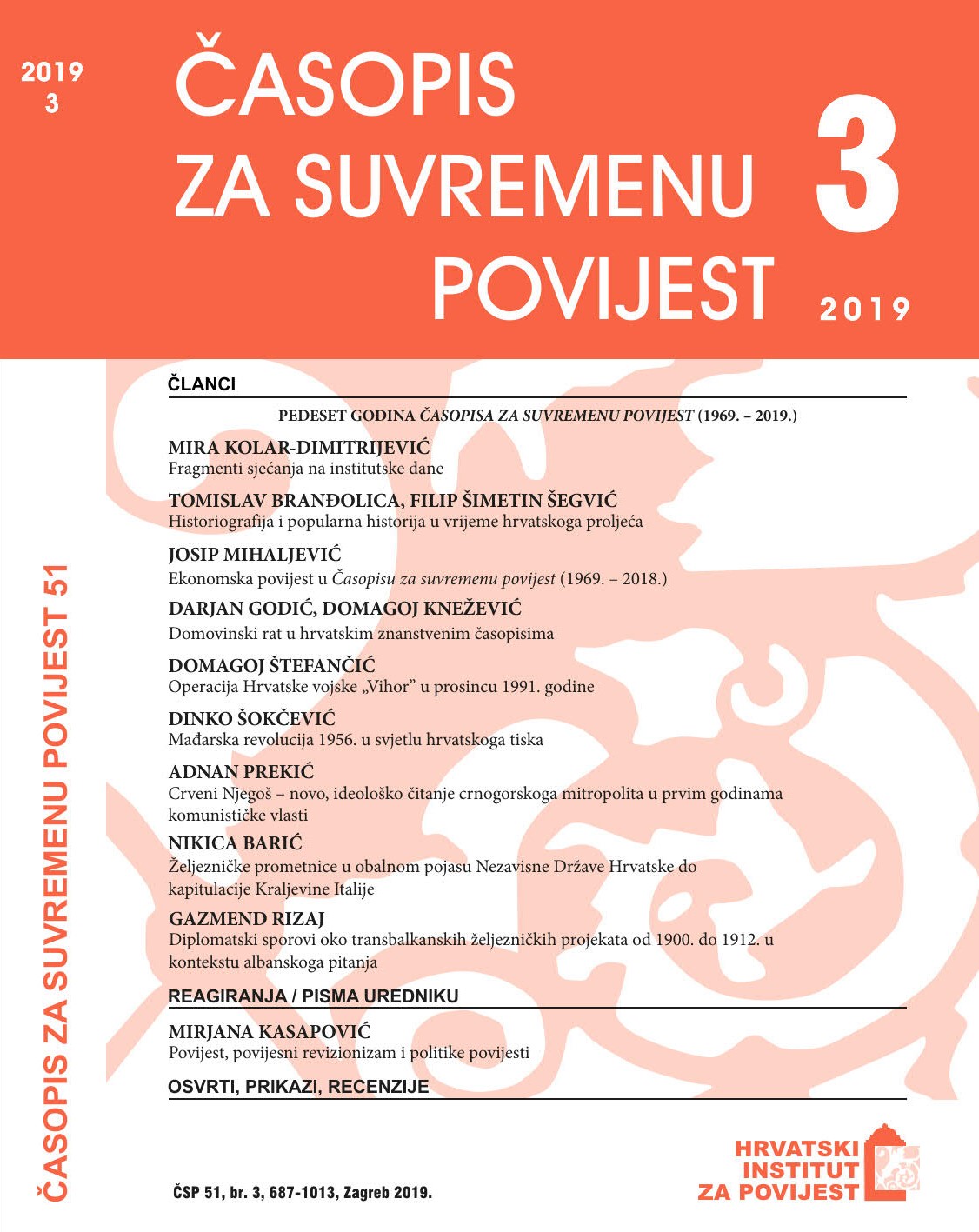Historiografija i popularna historija u vrijeme Hrvatskog proljeća
Historiography and Popular History at the Time of the Croatian Spring
Author(s): Tomislav Branđolica, Filip Šimetin ŠegvićSubject(s): History, Post-War period (1950 - 1989), History of Communism
Published by: Hrvatski institut za povijest
Keywords: Croatian Spring; historiography; popular history; Jaroslav Šidak; Mirjana Gross; Zvonimir Kulundžić; Franjo Tuđman; historical syntheses; anniversaries; institutions;
Summary/Abstract: The time from 1967 to 1971 was marked by a rise in free, non-dogmatic, and anti-dogmatic public manifestations in various fields of science, culture, economics, and politics. At the high point of the Croatian Spring movement, these processes were highly intensified through the public voicing of expectations and thoughts on the necessity for change in historiography and the contemporary humanities and social sciences in general. The historical context of the times will serve as a starting point for examining the level of freedom as well as the prevalence of popular and popularizing approaches to historical topics. The levels of scholarly versus popular discourse in the writing of historical works will also be looked into. Defining popular history as a specific historiographical genre, we shall delve into a wide swathe of contemporary mass media, journals, magazines, newspapers, and popular non-fiction as well as scholarly works of some of the more important institutions of the times: the Faculty of Humanities and Social Sciences in Zagreb, the Croatian Institute of the History of the Workers’ Movement, and the Matica hrvatska cultural institution. Contemporaneous syntheses of Croatian history will also be explored. Looking into the main individuals (such as Jaroslav Šidak, the doyen of Croatian historiography, the dissenting public intellectual and historian Franjo Tuđman, the non-fiction writer Zvonimir Kulundžić, and other scholars), institutions, and anniversaries that marked the times, alongside the approach of popular history, a new contribution can be given to the classical narration on the history of Croatian historiography in socialist times, which has up to now included the topics of the development of research institutions and historiographical schools, ‘scientification’, and processes of deviation and alignment to the general political and regime line of the times.
Journal: Časopis za suvremenu povijest
- Issue Year: 51/2019
- Issue No: 3
- Page Range: 699-740
- Page Count: 42
- Language: English, Croatian

